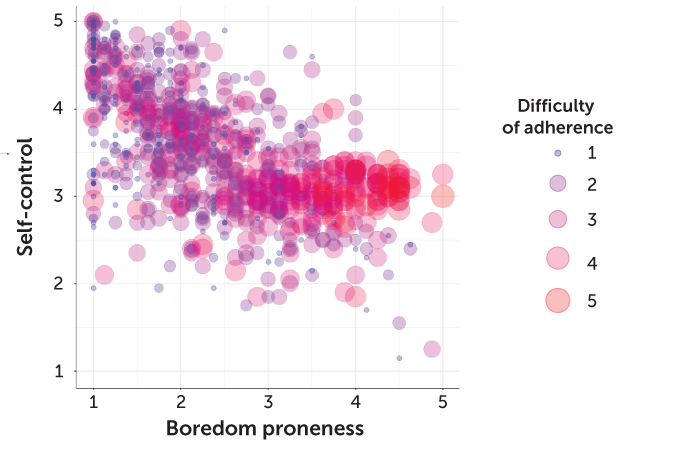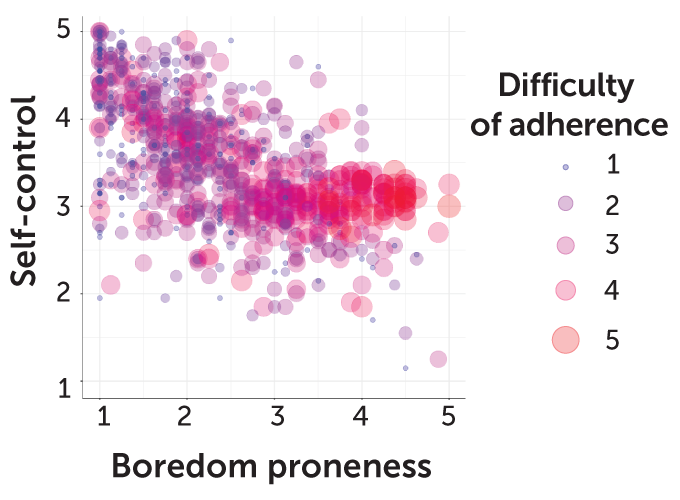In the social distancing era, boredom may pose a public health threat
Recent studies offer clues to why some people find it difficult to follow social distancing guidelines

Two recent studies suggest that people prone to boredom are more likely than others to break social distancing rules. Accepting the idea that feeling bored is normal could help people cope, researchers say.
Jarernchai Torchot/EyeEm/Getty Images Plus
By Sujata Gupta
- More than 2 years ago
Read another version of this article at Science News Explores
In recent months, journalists and public health experts have bandied about the term “pandemic fatigue.” Though not clearly defined, the general gist is that people have grown tired of the pandemic and keeping apart for almost a year and running. That fatigue can manifest as feelings of anxiety, hopelessness, frustration, anger and boredom.
Seeing boredom on that list worries those who study the phenomenon. “Usually boredom tells you that you should do something else,” says sports psychologist Wanja Wolff of the University of Konstanz in Germany. “In the context of a pandemic … that might not be the best thing.”
Recently, those fears have received more traction. Two similar yet independent studies, one by Wolff and colleagues and another by a U.S.-Canadian research team, found that people who frequently feel bored are more likely than others to flout social distancing guidelines. Those boredom-prone individuals also appear to be at higher risk of contracting the coronavirus.
Boredom, these studies suggest, may well constitute a real, yet underappreciated, public health threat.
Defining boredom
Across the Western humanities, boredom has typically been depicted as an individual failing. The 19th century German pessimist Arthur Schopenhauer defined boredom as the sensation of the emptiness of existence. French philosopher Jean-Paul Sartre called it a “leprosy of the soul.”
But researchers studying boredom say it merits a more neutral reading. That feeling of having nothing to do — what Russian author Leo Tolstoy called “the desire for desires” — serves as a signal, a call to the body to shift gears, goes the current thinking.
“Boredom is a sign that you’re not meaningfully engaged in the world,” says social psychologist Erin Westgate of the University of Florida in Gainesville. Researchers, including Westgate, have identified two paths to boredom: a loss of focus or a loss of meaning.
Certainly, many of us have lost the focus, or mental acuity, of the Before Times, Westgate says. In addition to a deadly pandemic that has brought city shutdowns and remote schooling, there have been civil rights protests, political unrest, a crippling recession and myriad other stressors both big and small. Those disturbances, which hobble our ability to stay mentally sharp, can lead to dullness. When boredom is defined this way, the busyness of, say, parents of young children provides little protection against feeling blah. In fact, Westgate and others have found that both understimulation and overstimulation can short-circuit one’s ability to pay attention.
Meanwhile, many of our lives have come unraveled. Research by personality and social psychologist Samantha Heintzelman of Rutgers University-Newark in New Jersey shows that simple routines, like getting coffee from the same café every day or a standing lunch date with a friend, actually imbue life with meaning. “We’re in a collective loss of routine right now,” Heintzelman says. That is to say, the social distancing guidelines aimed at protecting us from a deadly disease have also stolen the seemingly little things that give life meaning (SN: 8/14/20).
When people lose both focus and meaning in their lives, this form of boredom is “doubly bad,” Westgate says. “You can be bored because something is meaningful, but you can’t pay attention because it’s too easy or too hard. You can also be bored because you can pay attention, but it’s meaningless,” she says. “But if something is meaningless and you can’t pay attention, you’re like double bored.”
Prone to the blahs
Those two new boredom studies — each including almost 1,000 North American participants — show how elevated boredom levels among those prone to the feeling may be playing out during this pandemic.
In the study by the U.S.-Canadian team, researchers sought to quantify the link between a person’s innate propensity for boredom and rule-breaking behaviors during the pandemic, such as spending fewer hours apart from others or holding a social gathering. Boredom proneness across the sample explained 25 percent of the variance in rule-breaking behaviors, the team reports in the March Personality and Individual Differences. The researchers did not find a strong relationship between rule-breaking and other factors that might influence it, such as age or gender. (Young adults and men tend to score higher on boredom than other groups.)
Social distancing struggles
In a recent study, individuals who scored high on a five-point scale of proneness to boredom and relatively low on a five-point scale of self-control typically found it more difficult to adhere to social distancing guidelines (larger circles) than others.
Relationship between boredom proneness, self-control and difficulty adhering to social distancing measures


No single factor can explain 100 percent of any human behavior, says study coauthor and cognitive neuroscientist James Danckert of the University of Waterloo in Canada. But “25 percent is a huge amount.”
Wolff and colleagues, whose findings appeared online July 28 in the International Journal of Environmental Research and Public Health, meanwhile found that boredom-prone people ranked social distancing as more difficult than others did, and were less likely to adhere to social distancing guidelines. Both teams showed that those who scored higher in boredom were also slightly more likely than those scoring lower to report having gotten COVID-19.
“Boredom is an incredibly powerful motivator for behavior,” Wolff says. Yet, he adds, people can struggle with how to respond to that signal in safe and meaningful ways.
The danger of the doldrums
Westgate is not surprised that people who are especially prone to boredom, yet able to socially distance, find staying home mind-numbingly dull. She does wonder, though, about the rest of us: How are people who aren’t used to being bored contending with the loss of focus and meaning brought on by the pandemic? Are they also breaking the rules?
The research here is less direct but suggestive. In a 2014 study in Science, Westgate and colleagues asked 42 undergraduate students to sit alone with their thoughts for several minutes, no cell phones allowed. The students, though, had the option to push a button to receive a painful electric shock. About two-thirds of the male and a quarter of the female students pushed that button, some repeatedly, suggesting that even pain can be preferable to boredom for some (SN: 7/3/14).
Similarly, a 2019 study in Behavioral Decision Making by social psychologist Wijnand Van Tilburg and colleagues showed that inducing boredom in people through a repetitive gambling game prompted them to make riskier decisions.
Momentary boredom is not inherently bad, says Van Tilburg, of the University of Essex in England. But over a longer period, boredom can lead to serious public health outcomes if the situation “is unresolved or the resolution to it is harmful, like overeating or becoming aggressive or not wearing a mask,” he says.
A recent study provides clues to how unresolved boredom may be playing out. Most epidemiological models assume that people will start and maintain social distancing as soon as COVID-19 cases begin going up in an area. That would cause deaths, which lag cases by a few weeks, to spike but then plummet in response to the social distancing — causing the model forecasts of deaths to resemble a mountain with a sharp peak.
But researchers reporting in the Dec. 22 Proceedings of the National Academy of Sciences found, based on Google’s COVID-19 Mobility Reports,that in most U.S. states, people did initially hunker down as cases rose in the spring and summer, but then increased their movements before the threat had passed. As a result, true curves of COVID-19 fatalities resemble not a peak but plateaus or short dips followed by a rapid increase. That is, death rates did not plummet as expected but remained high. When the researchers incorporated that premature resurgence of activity into epidemiological models, the predicted curves better replicated real-life fatality patterns.
The authors attribute people’s actions, and the higher-than-expected death toll, to pandemic fatigue, which includes boredom.
In the coming months, boredom from pandemic fatigue may well intensify. The spread of the coronavirus, including new and even more contagious variants (SN: 1/15/21), in the United States and many other places continues to spiral out of control. Though hope is at hand with the rollout of vaccines, public health experts warn that vaccinating enough people to halt the virus’ spread in the United States could take us well into 2021. What is that collision of hope and despair doing to our levels of boredom? How many of us will drop our guard?
What now?
Wolff is now investigating how to help those experiencing boredom follow social distancing rules. His July paper showed that when boredom-prone people exhibit high self-control, they do a better job with adherence. Training people to have more self-control may be difficult though, Wolff says. Instead, he suggests that people reduce the need for self-control by creating contingency plans.
His preliminary research, posted online June 25 at PsyArXiv.com, suggests that such “if-then” plans can help. For instance, if an indoor gym is too dangerous, a person could instead plan to start running outside. Wolff suggests people take small steps to make it easier to follow such a change in routine, such as putting workout clothes out on the bed the night before and sneakers by the front door. “The idea is to make behavior more automatic,” he says.
But even with the best-laid plans, retaining focus and meaning during the pandemic is no easy task. Researchers say it’s worth reminding ourselves that boredom is a neutral signal, neither bad nor good. And some people who hunker down right now and explore that feeling may discover that the boredom has deeper roots that may even predate the pandemic.
So perhaps the most optimistic framing of the situation is that some people will use this protracted moment of boredom to think about larger life goals, Van Tilburg says. “It is possible to get meaning out of these negative situations.”







